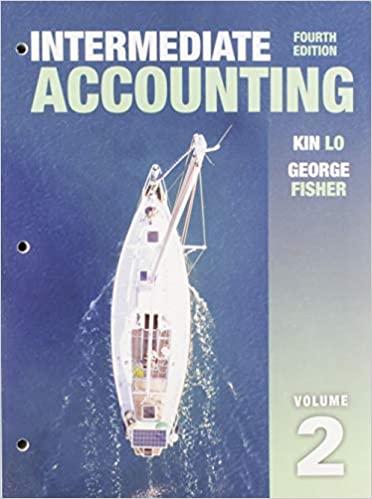Question
1. The effective portion of a loss associated with a change in fair value of a derivative instrument should be reported as a component of
1. The effective portion of a loss associated with a change in fair value of a derivative instrument should be reported as a component of other comprehensive income only if the derivative is appropriately designated as a:
A: Cash flow hedge of the foreign currency exposure of a forecasted transaction
B: Fair value hedge of the foreign currency exposure of an unrecognized firm commitment
C: Fair value hedge of the foreign currency exposure of a recognized asset or liability for which a foreign currency transaction gain or loss is recognized in earnings
D: Speculation in a foreign currency
____________________________________________________________________________
2. On November 3, the spot price for cotton was $0.81/lb., and the February futures price was $0.83/lb. On November 3, Levi Strauss sold 200 futures contracts on the commodity exchange at $0.83/lb. for delivery in February. Each contract was for 25,000 lbs. Levi Strauss designated these contracts as a cash flow hedge of 5 million lbs. of current inventory which it expected to sell in February. The average spot of this inventory when purchased was $0.58/lb. Levi Strauss properly documented the hedge and employed hedge accounting. On November 30, the companys fiscal year end, the February commodity exchange futures price was $0.85/lb.
If, on November 30, Levi Strauss concluded that the hedge was 100% effective, it should record the hedged cotton inventory in the November 30 balance sheet at
A: $4,350,000
B: $4,250,000
C: $3,000,000
D: $2,900,00
_____________________________________________________________________________________
3.On November 3, the spot price for cotton was $0.81/lb., and the February futures price was $0.83/lb. On November 3, Levi Strauss sold 200 futures contracts on the commodity exchange at $0.83/lb. for delivery in February. Each contract was for 25,000 lbs. Levi Strauss designated these contracts as a cash flow hedge of 5 million lbs. of current inventory which it expected to sell in February. The average spot of this inventory when purchased was $0.58/lb. Levi Strauss properly documented the hedge and employed hedge accounting. On November 30, the companys fiscal year end, the February commodity exchange futures price was $0.85/lb.
In the November 30 balance sheet, Levi Strauss should record the futures contracts as a
A: $100,000 asset
B: $100,000 liability
C: $4,250,000 liability
D: $4,250,000 asset
_______________________________________________________
4. On September 3, 2015, HH Corp. purchased merchandise for 10,000 units of the foreign companys local currency. On that date, the spot rate was $1.35. HH paid the bill in full on February 15, 2016, when the spot rate was $1.45. The spot rate was $1.40 on December 31, 2015. What amount should HH report as a foreign currency transaction gain (loss) in its income statement for the year ended December 31, 2016?
A: $500
B: $1,000
C: ($500)
D: ($1,000)
______________________________________________________
5. On November 2, 2014, Platt Co. entered into a 90 day futures contract to purchase 50,000 Swiss francs when the contract quote was $0.70. The purchase was for speculation in price movement. The following exchange rates existed during the contract period:
| 30 Day Futures | Spot Rate | |
|---|---|---|
| November 2, 2014 | $0.62 | $0.63 |
| December 31, 2014 | $0.65 | $0.64 |
| January 31, 2015 | $0.65 | $0.68 |
What amount should Platt report as foreign currency exchange loss in its income statement for the year ended December 31, 2014?
A: $2,500
B: $3,000
C: $3,500
D: $4,000
Step by Step Solution
There are 3 Steps involved in it
Step: 1

Get Instant Access to Expert-Tailored Solutions
See step-by-step solutions with expert insights and AI powered tools for academic success
Step: 2

Step: 3

Ace Your Homework with AI
Get the answers you need in no time with our AI-driven, step-by-step assistance
Get Started


